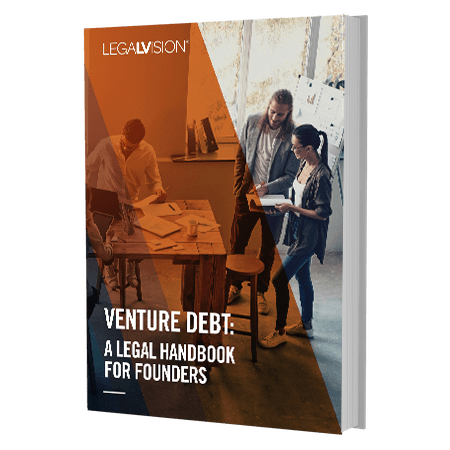In Australia, insolvency laws are crucial for maintaining the integrity of the business landscape and protecting the interests of creditors. One significant provision that addresses these concerns is Part 5.7B of the Corporations Act 2001 (Cth). This part deals with insolvent transactions and gives liquidators the power to recover payments or asset transfers made by the insolvent company before its liquidation. This article will explore these laws further and their implications for businesses and creditors, including voidable transactions.
What Are Insolvent Transactions?
A transaction is insolvent when the payment:
- unfairly favours a company/creditor; or
- is an uncommercial transaction involving an insolvent company.
The law requires specific steps for an insolvent transaction to happen:
- the insolvent company must enter a transaction;
- the transaction must be either an unfair preference or an uncommercial transaction;
- the transaction is entered into, or an act has given effect to the transaction when the company is insolvent; or
- the company becomes insolvent due to the transaction being carried out.
When a Transaction is Found to be Insolvent
If a transaction is insolvent, it might become a ‘voidable transaction’. This means that any transactions the company made with other parties could get undone, cancelled, and taken back when a liquidator is appointed. The liquidator can void or recover voidable transactions, meaning the liquidator can recover any payments or asset transfers made by the insolvent company from the parties involved in the voidable transactions.
What Are Unfair Preference Payments?
When an insolvent company pays a creditor, favouring them over others, it creates an ‘unfair preference payment’. This provision allows for the ‘clawback’ of such payments to ensure fair distribution among all creditors. A liquidator can recover unfair preference payments if made within six months before the relation-back day or within four years if the recipient is a related entity.
Continue reading this article below the formRelation-Back Day
In insolvency proceedings, the law uses the term ‘relation-back day.’ It refers to the day from which various transactions are deemed to have occurred, effectively backdating those transactions. Typically, the relation-back day is when the company enters into a form of external administration or, in some cases, when the winding-up application is filed. It is a key reference point for assessing the validity of transactions before insolvency.
When is a Transaction an Unfair Preference?
Certain conditions classify a transaction as an unfair preference, such as:
- the transaction involves the insolvent company, a creditor of the company;
- the transaction results in the creditor receiving a payment from the company for an unsecured debt owed to the creditor; and
- if the payment received by the creditor through the transaction is more than the creditor would have received from the company if the creditor were to have to prove the amount owed as proof of debt in the winding-up proceedings.
Uncommercial Transactions
An ‘uncommercial transaction’ is when a company makes a deal without getting some fair in return. This rule aims to prevent companies from selling or disposing of assets at significantly undervalued prices, which could disadvantage creditors. A liquidator can void uncommercial transactions if they occur before two years of the relation-back day or four years if a related entity is involved.
An uncommercial transaction is a transaction that a reasonable person in the insolvent company’s director’s position would not have entered into, taking into account the following points:
- benefit: the benefit the company gains entering the transaction;
- detriment: the detriment to the company entering the transaction;
- benefit to others: the benefit of any other parties that may occur by the company entering the contract; and
- other factors: any other relevant matters.
When an Insolvent Transaction Occurs
An insolvent transaction occurs when the following happens:
- the insolvent company must enter a transaction;
- the transaction is an unfair preference or an uncommercial transaction;
- the transaction is entered into, or an act has given effect to the transaction when the company is insolvent; or
- the company becomes insolvent because the transaction was entered into.
This means the appointed liquidator could undo any transactions that meet the criteria. The liquidator can void or recover voidable transactions, meaning the liquidator can recover any payments or asset transfers made by the insolvent company from the parties involved in those transactions. These powers aim to prevent unfair advantages among creditors and to ensure that the company’s assets are distributed fairly.
Related Entity
In insolvency laws, a ‘related entity’ refers to an entity closely connected to the insolvent company. Related entities can include:
- holding companies;
- subsidiaries;
- directors;
- a relative or a spouse of a director;
- a beneficiary (or a relative of a beneficiary) under a trust of which the company has been a trustee; and
- other entities connected through ownership or control.
Other Voidable Transactions
There are a number of further types of voidable transactions, as set out below.
Unfair Loan Contracts
Unfair loan contracts are loans that were entered into when the company was insolvent or became insolvent as a result. One important point to remember is that there is no time frame for if a loan is considered unfair. The law can consider any loan unfair if it was entered into before the company was placed in liquidation. These contracts can be cancelled if they are unfair to the company or its creditors.
A loan is unfair if:
- the interest on the loan was extremely high when the loan was made, or it has become extremely high because of a subsequent variation to the loan; or
- the fees for the loan were extremely high when the loan as made, or the fees have become excessive because of a subsequent variation to the loan.
Unreasonable Director-Related Transactions
The law aims to prevent transactions in which a company’s director or a director’s relative unreasonably and harmfully affects the company’s creditors. For example, such transactions may involve excessive director bonuses or payments that drain the company’s assets. Voiding such transactions can ensure that the interests of the creditors are protected.
There are specific criteria for determining when a transaction becomes an unreasonable director-related transaction. This happens when:
- the company makes a transaction;
- the transaction is a:
- payment;
- conveyance;
- transfer;
- disposition of property;
- the issue of securities; or
- the incurring of an obligation;
- the transaction is made to a:
- director of the company;
- relative of a director;
- relative of a spouse of a director; or
- a person on behalf of, or for the benefit of, a director; or
- a reasonable person in the company’s circumstances would not have entered into the transaction.
Creditor-Defeating Dispositions
The law also addresses cases where a company sells its property for less than its actual value, intending to stop creditors from getting that property. If a transaction meets the unfair preference payment or uncommercial transaction conditions but falls outside of the set timeframe, it might be labelled as a creditor-defeating disposition. In these instances, the law can step in to prevent companies from reducing their assets unfairly and hurting their creditors.
Defences Available
Parties involved in transactions that might be seen as voidable under the above provisions have several defences. These defences include if:
- no benefit is gained, or a benefit was received in good faith without grounds for suspecting insolvency from the transaction; and
- the transaction is entered into for valuable consideration in good faith without grounds for suspecting insolvency (however, this defence does not apply to unfair loans or unreasonable director-related transactions).

This handbook aims to help startup founders understand the benefits of venture debt, how a venture debt deal works and how to prepare for taking on this form of capital raising.
If your startup is in a high growth phase and looking to extend its cash runway, venture debt can be an ideal capital raising avenue.
Key Takeaways
Australian insolvency laws ensure creditors are treated fairly, and business transactions remain honest during financial difficulties. These laws deal with different parts of transactions that lead to insolvency. They help distribute assets fairly and encourage responsible business behaviour. Businesses, directors, and stakeholders must understand these laws to handle insolvency matters well.
If you have any questions about liquidating voidable transactions, our experienced insolvency and liquidation lawyers can assist as part of our LegalVision membership. For a low monthly fee, you will have unlimited access to lawyers to answer your questions and draft and review your documents. Call us today on 1300 544 755 or visit our membership page.
We appreciate your feedback – your submission has been successfully received.












